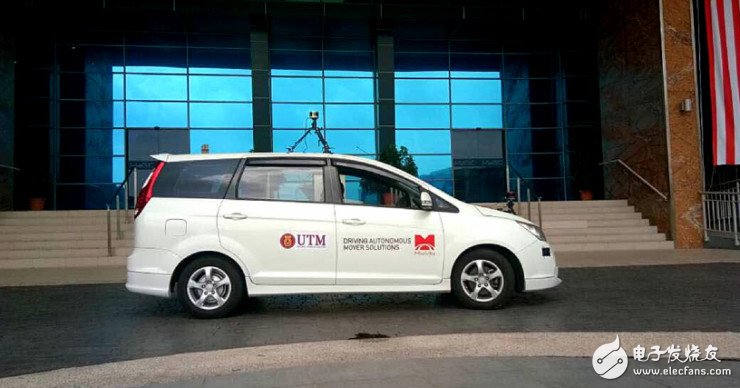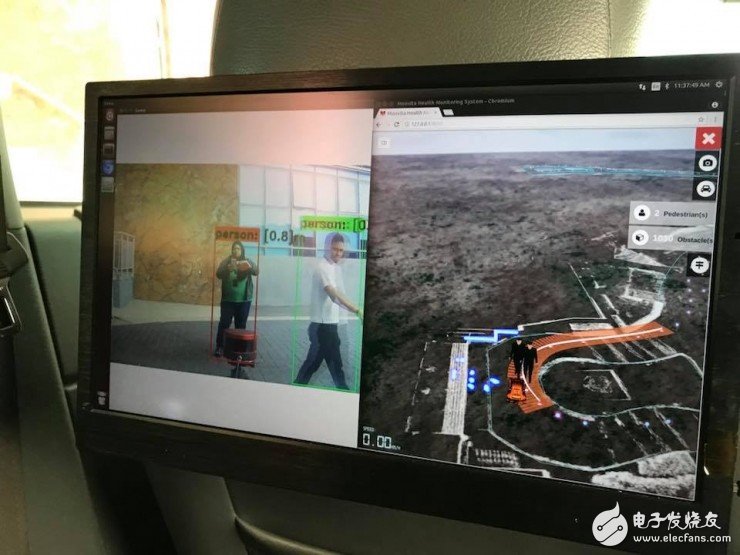When it comes to autonomous driving, the first names that come to mind are usually big car manufacturers, tech giants, and a wave of Silicon Valley startups. But the truth is, they aren't the only ones involved. The real revolution in self-driving technology has spread across the globe, and even companies facing challenges or falling behind still keep their eyes on the finish line.
This trend is also gaining momentum in Malaysia, a country that might not immediately come to mind when thinking about autonomous vehicles. However, Malaysia is quietly making its mark in this fast-evolving industry.
Some may have heard of CRETA, an innovative device that enables any vehicle to gain autopilot capabilities. It was developed by REKA, a Malaysian company aiming to bring smart mobility solutions to the region.

Currently, the main players driving Malaysia’s autonomous driving efforts are the Malaysian Institute of Technology (UTM) and Singapore-based Moovita. Together, they are developing tailored solutions for the unique conditions of Malaysian roads.
Recently, some people in Malaysia have spotted test vehicles on the road. These cars, such as a Proton Exora modified with sensors, cameras, and radar systems, are designed to reach Level 5 autonomy—fully self-driving without human intervention.
According to a UTM representative, these test vehicles are part of an autonomous driving technology acceleration project. The goal is to speed up research and development while ensuring the technology works effectively in local environments.
One of the biggest appeals of autonomous vehicles is safety. They operate without direct driver input, relying on a combination of sensors, GPS, algorithms, and advanced computing to make decisions in real time.

The perception capabilities of these vehicles are impressive, but there are still many questions left unanswered.
Will self-driving technology become an add-on like CRETA, or will it be integrated directly into new vehicles? And how will it adapt to the unpredictable nature of Malaysian roads?
Every family has its secrets — and so does every country. For Malaysians, a customized solution that fits local road conditions is highly appealing.
After all, no one is immune to the frustrations of traffic. Road conditions in Malaysia are often chaotic, with drivers frequently breaking rules, parking improperly, and causing congestion. These challenges could pose significant hurdles for autonomous vehicles in the future.
Not to mention reckless drivers who speed, text while driving, or drive under the influence. In this environment, the biggest challenge for self-driving cars might not be the technology itself, but the behavior of human drivers on the road.
Communication is another critical factor. Even simple actions like changing lanes require coordination between vehicles. Can autonomous cars learn from human driving habits? Can they predict pedestrian movements and understand human intentions?
Beyond the technical challenges, there are also legal and social considerations. Will lawmakers allow autonomous vehicles on public roads? Can Singapore and Malaysia work together to create something truly groundbreaking?
Aluminum Frame LV 3PH Asynchronous Motor
Aluminum Frame Lv 3Ph Asynchronous Motor,Three-Phase Asynchronous Motor,3 Phase Asynchronous Induction Motor,Aluminum Frame Three Induction Motor
Yizheng Beide Material Co., Ltd. , https://www.beidevendor.com